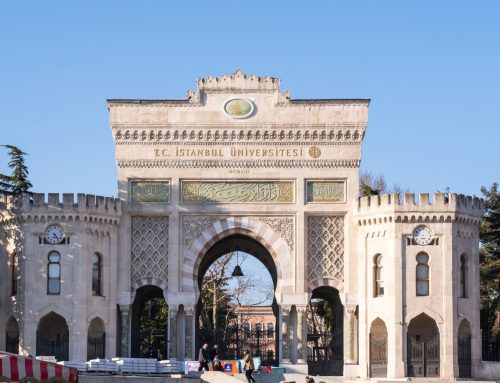Turkish Citizenship by Investment: Complete Guide 2025
# Turkish Property Law for Foreign Investors 2025
The Turkish legal system has evolved significantly to accommodate international investors while maintaining necessary regulatory safeguards. Understanding these legal frameworks is crucial for foreign investors considering property acquisition in Turkey, as they provide both opportunities and important limitations to consider.
## Foundational Legal Framework
Property rights in Turkey are protected under the Land Registry Law (Tapu Kanunu) and various international agreements. Recent years have seen significant expansion of foreign ownership rights, though strategic and military zones remain restricted. The legal system provides strong property rights protection, with the land registry system offering secure title deed registration and ownership documentation.
## Foreign Ownership Rights and Restrictions
Foreign individuals can purchase property in Turkey subject to certain restrictions. The most significant limitation is the 30% rule, which prevents foreign ownership from exceeding 30% of any given district’s total area. Military zones, strategic areas, and agricultural land also have specific restrictions for foreign buyers.
Citizenship eligibility through property investment requires a minimum purchase of $400,000, with a mandatory three-year holding period. This provision has become increasingly popular among international investors seeking both property ownership and Turkish citizenship.
## Title Deed Process and Registration
The Turkish title deed (tapu) system provides secure property ownership registration. All property transactions must be recorded at the Land Registry Office (Tapu Dairesi), where official transfer procedures take place. The system’s digitalization has significantly streamlined the process, though in-person appearance is still required for final signatures.
The registration process involves several key steps:
– Title deed search and verification
– Military zone clearance
– Property value assessment
– Tax obligations clearance
– Official transfer at the land registry
## Construction and Zoning Laws
Turkey’s zoning laws (İmar Kanunu) regulate property development and usage rights. These regulations determine:
– Building density and height restrictions
– Land use classifications
– Development permissions
– Infrastructure requirements
– Environmental protection measures
Understanding zoning regulations is particularly important for investors considering development projects or property modifications.
## Property Purchase Process Legal Requirements
The legal purchase process involves several mandatory steps and documentations:
Legal Documentation Required:
– Valid passport
– Tax identification number
– Property appraisal report
– Military zone clearance
– Bank valuation report for citizenship applications
The process typically involves:
1. Preliminary contract preparation
2. Due diligence procedures
3. Title deed check
4. Payment arrangements
5. Official transfer proceedings
## Ownership Types and Rights
Turkish law recognizes various property ownership types:
Full Ownership (Tam Mülkiyet):
– Complete control over property
– Right to sell, rent, or modify
– Inheritance rights
– Development rights within zoning laws
Condominium Ownership (Kat Mülkiyeti):
– Individual unit ownership
– Shared common area rights
– Management participation rights
– Maintenance obligations
## Tax Obligations and Legal Fees
Property ownership in Turkey involves several tax obligations:
Purchase Taxes and Fees:
– Title deed fee (4% total, typically split between buyer and seller)
– VAT on new properties (varies based on property type)
– Annual property tax (0.1-0.6% of property value)
– Capital gains tax on resale (varies by holding period)
## Legal Protection and Dispute Resolution
The Turkish legal system provides various mechanisms for property dispute resolution:
Legal Protection Measures:
– Court system specializing in property disputes
– International arbitration recognition
– Legal precedent system
– Enforcement mechanisms
## Property Management Legal Framework
Property management in Turkey is governed by specific regulations:
Management Rights and Obligations:
– Building management participation
– Common area responsibilities
– Utility connections and payments
– Insurance requirements
– Renovation permissions
## Environmental and Heritage Protection Laws
Properties in historically significant areas or environmentally sensitive zones face additional regulations:
Protection Categories:
– Historical site restrictions
– Environmental protection zones
– Coastal area regulations
– Forest proximity rules
– Archaeological site considerations
## Contract Law and Property Agreements
Turkish contract law governs property-related agreements:
Essential Contract Elements:
– Purchase agreements
– Rental contracts
– Management agreements
– Construction contracts
– Service agreements
## Future Legal Developments
The Turkish legal system continues to evolve, with several developments expected:
Upcoming Changes:
– Digital transformation initiatives
– Simplified procedures for foreign investors
– Enhanced property rights protections
– Streamlined citizenship processes
– Environmental regulation updates
## Legal Support and Professional Services
Foreign investors are advised to work with qualified professionals:
Professional Support:
– Property lawyers
– Licensed real estate agents
– Certified translators
– Tax advisors
– Property valuers
## Risk Management and Legal Safeguards
Understanding and implementing legal safeguards is crucial:
Risk Mitigation Strategies:
– Comprehensive due diligence
– Title insurance options
– Legal representation
– Document verification
– Payment protection measures
## Conclusion
Turkish property law provides a robust framework for foreign investment while maintaining necessary regulatory oversight. Success in the Turkish property market requires understanding these legal requirements and working with qualified professionals to ensure compliance. While the system has become increasingly foreign-investor friendly, careful attention to legal requirements and procedures remains essential.
Regular monitoring of legal updates and maintaining relationships with legal professionals helps ensure continued compliance and optimal property investment outcomes. The evolving legal framework continues to balance investor accessibility with necessary regulatory safeguards, making Turkey an increasingly attractive destination for international property investment.





